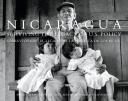FRIDAY, APRIL 20, 2012
Nicaragua: Surviving the Legacy of U.S. Policy
Just released!Order the book now!

In the 1980s, popular movements in Central America attempted to democratize their societies and to direct a larger portion of each country's resources, in the form of food, housing, health care, and education, toward the well-being of the poor majority; at the same time the U.S. government, under the banner of peace, freedom, and democracy, sponsored wars that blocked local efforts for change. Two decades later, the poor of Central America continue to experience the effects of these wars and to struggle for basic subsistence with little hope that their children will have schools, health care, or even adequate nutrition. Many U.S. citizens still do not recognize the role the U.S. government played in stopping these movements towards democracy.
From early 1985 through mid 1990, Paul Dix used his camera to document the effects of the U.S.-funded Contra War on the poor of Nicaragua. In 2002, from the thousands he had photographed, Paul selected approximately 100 Nicaraguans for follow-up. He and Pam Fitzpatrick had amazing luck when they returned to Nicaragua on four separate trips for a total of seventeen months, and located nearly all of these individuals. They were able to share the earlier photos with family members, take new photographs and record testimonies.
Paul and Pam shared this material in colleges across the U.S. for two academic years and have put their material into book form. Their bilingual book includes photos and testimonies from approximately thirty of the nearly one hundred Nicaraguans they re-contacted.
This website shares a few of the photos that are included in this book. To order the book click here.
Labels: Archives